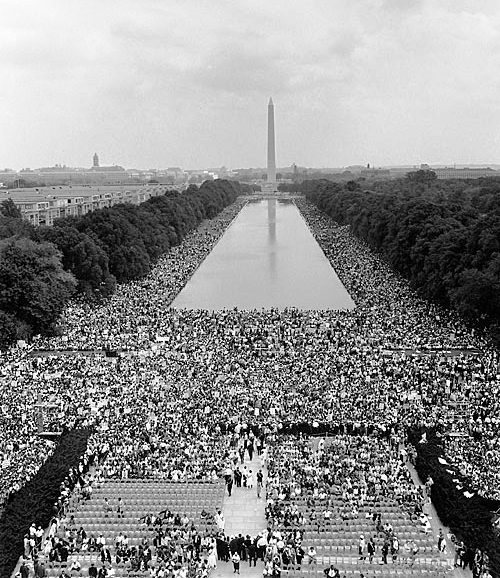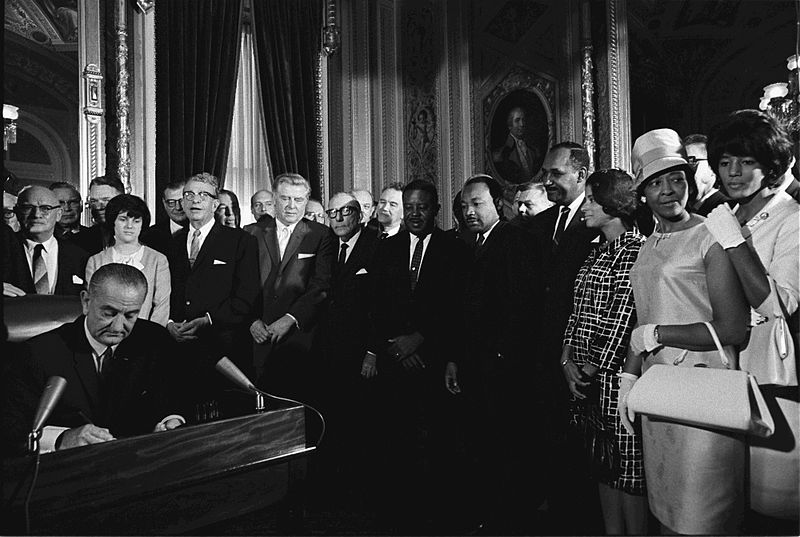The Civil Rights Movement
WORKING FOR EQUAL RIGHTS
Freedom riders were groups of people who would leave the north and travel through the south by bus. They stopped at bus stops and restaurants in small towns and would demand service. They also marched, shouted, and sang about equal rights. Many freedom riders were arrested. Some were beaten, chased by police dogs, or hit with water from fire hoses.
Three white men on one of the freedom buses disappeared. The FBI later found their bodies. The murders were blamed on the Ku Klux Klan.
Freedom rides ended when the Interstate Commerce Commission tightened regulations against segregated bus and train terminals. |
| |
On September 15, 1963, at 10:22 a.m., a bomb exploded at the Sixteenth Street Baptist Church in Birmingham killing four young girls who had been attending Sunday school classes at the church. Twenty-three other people were also hurt by the blast. |
|
|
In August 1963, more than 200,000 people marched in Washington, D.C. to show their support for equal rights. Martin Luther King spoke to the crowd giving his I have a Dream speech. |
 |
| |
In 1964, Congress passed the Civil Rights Law. This law gave all Americans equal rights to use public places, for education, and in jobs. |
 |
 |
Some African Americans were not happy with the new law. They wanted change to take place immediately. They wanted "Black Power." In the summer of 1965, a large riot took place in Los Angeles. For four days, buildings were looted and burned. The National Guard was called in to stop the rioting. |
|
| Lyndon B. Johnson asked Congress to pass the Voting Rights Act of 1965. This act did away with many of the practices that prevented African Americans from voting. For example, voter tests and poll taxes were made illegal. |
 |
|
Online Quiz Drop Down Version
Online Quiz
Drag Version
|
|
|
|